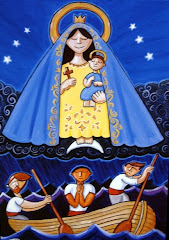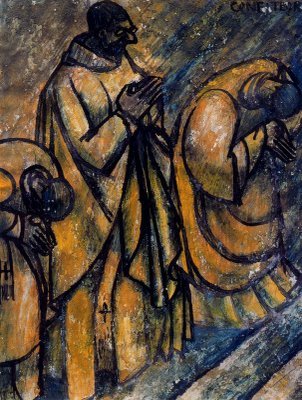
Part I
Tubal according to Book of Genesis chap. 10 (the Table of Nations), was the name of a son of Japheth, son of Noah.
The Book of Genesis (chap. 10) gives us the descendants of Noah's three sons, Shem, Ham, and Japheth. We are told that the sons of Japheth were Gomer, and Magog, and Madai, and Javan, and Tubal, Meshech, and Tiras.
Many authors, following the Romanized Jewish author Josephus (1st century AD), related the name to Iber. Concerning the question of the ethnic affinity of the population of Tubal, Josephus wrote: "Tobal gave rise to the Thobeles, who are now called Iberes". This version was repeated by Patriarch Eustathius of Antioch, Bishop Theodoret, and others. However, the Welsh historian Nennius stated another tradition that Tubal was ancestor to the Iberians, 'Italians' [i.e., Italic tribes] and 'Spanish' [who were also called Iberians]. Tubal, is also said to be the founder of portuguese city of
Basque intellectuals like Poza (16th century) have named Tubal as the ancestor of Basques, and by extension, the Iberians. The French Basque author Augustin Chaho (19th century) published The Legend of Aitor, asserting that the common patriarch of the Basques was Aitor, a descendant of Tubal.
Upon these first strata of population, which may be considered aboriginal, were superimposed the colonists and conquerors. The colonists wereGreeks and Phoenicians; the conquerors, Carthaginians, Romans, Goths, and Arabs.
The Phoenicians, who colonized all the Mediterranean coasts, established a great many colonies, or factories, in the South of Spain — Carteya, Calpe, Malaga, Sexi, and chief of all, Gades (Cádiz), the centre of their power in Spain and their cult of Hercules, which is symbolized on the Gaditanian coins. Soon after the Phoenicians, the Greeks began establishing their colonies, the chief colonizers being the Rhodians at Rosas, south of Cape Creus (910 B.C.), the Phocians, at Emporium (Ampurias, the present name, or Ampurdan, being derived from Emporitanum) and at Artemisium (Denia, from Diana, another name for Artemis), and the Zacynthians, who founded Saguntum and populated Iviza, giving it the name of Ophiusa.
The Carthaginians settled in the Balearic Isles in the seventh century B.C. In the sixth century, having aided the Phoenicians of Cádiz against the Tartesians, they took possession of that city and began trading in Baetica. After the First Punic War they sought to indemnify themselves for their losses in
The Spaniards showed no more docility to the Romans than to the Carthaginians. Indibil and Mandonium commenced that course of resistance which ended only whenSpain had been Romanized.
Under the Roman domination


No comments:
Post a Comment